'We are all part of the solution' — Wayne County community tackles homelessness
WOOSTER – Packed to the brim with nearly 200 Wayne County residents, First Presbyterian Church of Wooster hosted area community and social service agencies Thursday evening to discuss housing and homelessness in the county.
The crowd became so large that members of the host organizations, League of Women Voters and the Wooster Homelessness Task Force, procured more seating.
Housing: Wooster is getting more housing. Walnut Street townhomes going up, duplex coming later
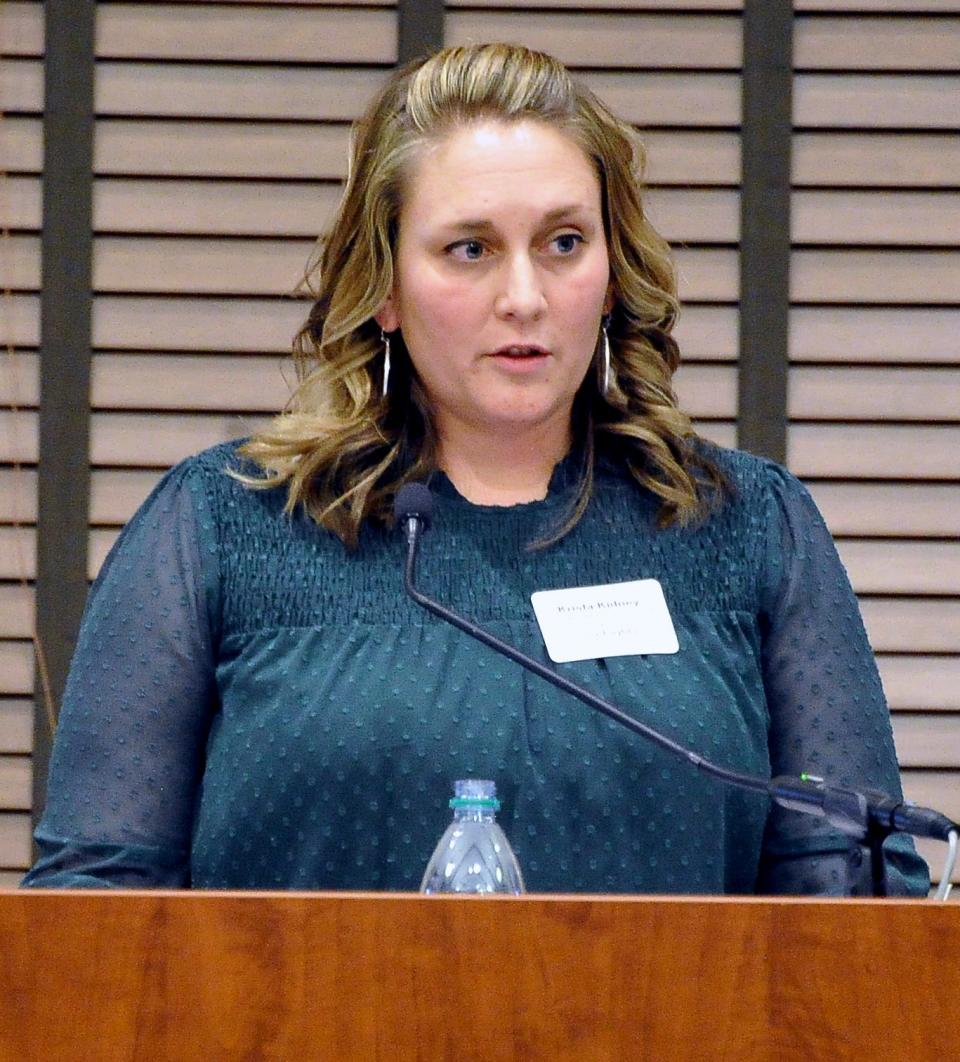
"I haven't spoken in front of this many people since the pandemic began," said Krista Kidney, director of homelessness and housing services at OneEighty.
Kidney was one of three panelists at the public meeting who addressed the audience. She joined the Rev. Kevan Franklin of Trinity United Church of Christ and Deb Catlett, the deputy director at the Wayne Metropolitan Housing Authority.
The three panelists discussed the state of housing and homelessness in Wayne County, answered community submitted questions and described how individuals can help social services and unsheltered individuals.
"This is truly a community issue and it will take all of us to help," Kidney said after the event.
Seated in the front of the audience to answer questions were representatives from social services, community agencies and city of Wooster and Wooster Police Department officials.
More than 100 homeless individuals in Wayne County
According to the end-of-summer homeless count throughout the county, there are 107 people living in shelters or on the streets, said Kidney.
While this number is down from a peak of 140 in the summer of 2019 and could change come the February count, Kidney emphasized there are still over 100 people living in uncertain circumstances.
"We are working with a population that is in a constant state of crisis," she told the audience.
Homelessness: Wayne County's homeless steered toward shelter when days turn frigid
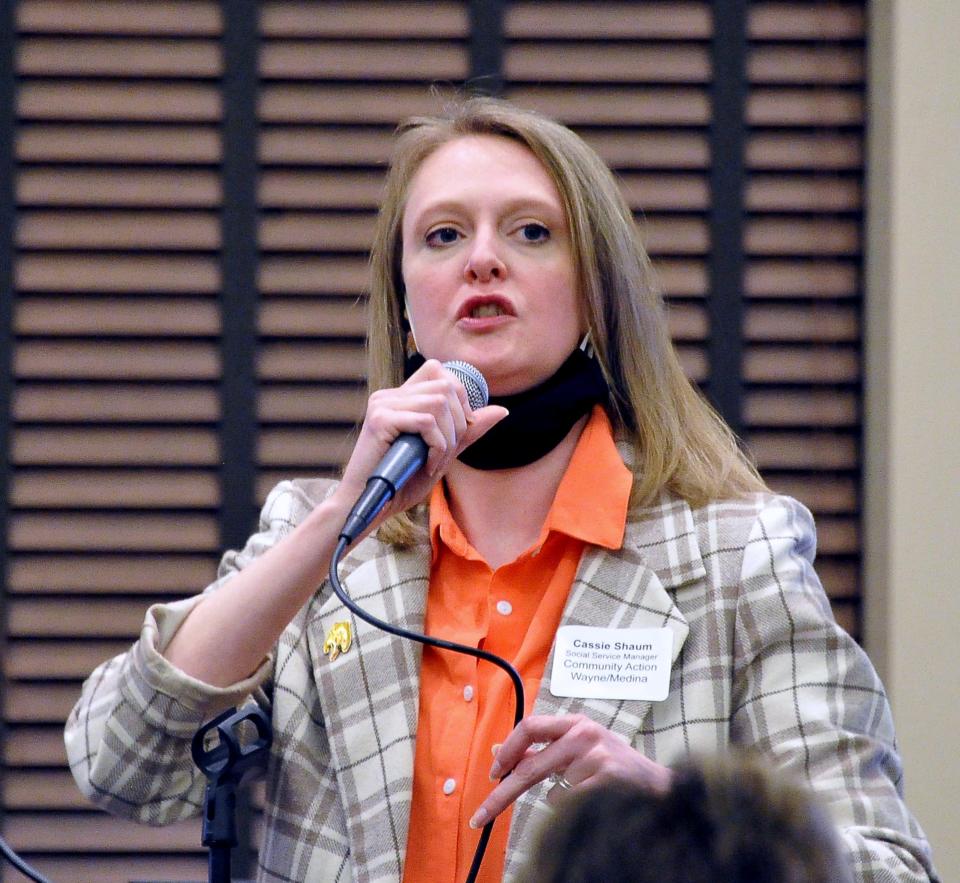
They don't know where there next meal will come from, where to use the restroom or find a place to sleep, she said. There is anxiety from one moment to the next.
This way of life is stressful and negatively impacts the brain and body, said Cassie Shaum, social service manager at Community Action Wayne/Medina.
Shaum put it bluntly: Living in poverty causes trauma.
Everything from emotional responses and fight or flight to memories and thought processing is affected by this trauma. It changes how the brain functions, and how people act in certain situations, she said.
In the Rev. Kevan Franklin's many years in Wooster, he's worked with numerous shelterless individuals, and he's seen the health complications that come with homelessness.
According to research he presented from the National Institute of Health, life expectancy is much lower for homeless individuals — on average 17 1/2 years lower. Franklin said Homeless men, on average, live to be age 56, while life expectancy for women is age 52.
Many of the unsheltered people he knew were homeless because of a major health incident that put them out of work, he said. Without a roof over their heads, existing or developed medical issues often went untreated.
"I've seen so many die of untreated illnesses," Franklin said.
When COVID-19 struck in 2020, many homeless individuals were put at greater risk of a severe case and of developing long term coronavirus issues because of pre-existing chronic conditions, said Jaime Parsons, CEO of the Viola Startzman Clinic.
Without proper medical treatment and access to quality health care, many are at risk of developing long COVID on top of other ailments, she said.
How social, medical and community services aid the homeless
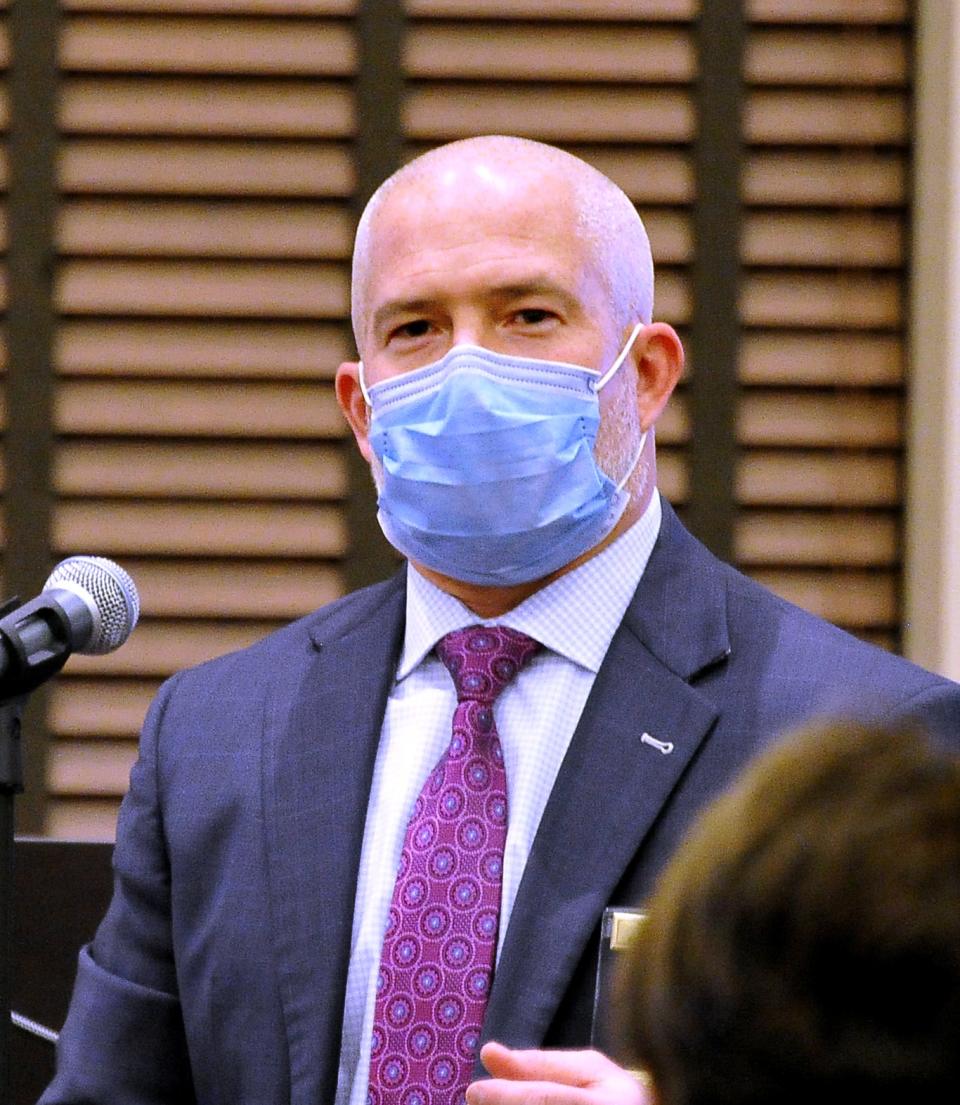
How these problems are addressed and what services are available to the roughly 100 homeless individuals was a prime question posed by the public.
It was also a topic panelists, such as Kidney, hoped to address.
City council: City council considers tax plan for infrastructure projects near Oak Hill Road
There are multiple shelter options in Wayne County, including the Wooster Salvation Army, OneEighty and the Salvation Army's Severe Weather Shelter and Living Room, she said.
This winter season through Thursday, Feb. 10, the Severe Weather Shelter has opened 41 nights with an average of 15 guests per night, Kidney said.
There are also meal sites throughout the county for food, she said.
The Salvation Army and OneEighty accept calls from those who are experiencing or expect to experience a housing crisis when they are at risk of losing their home. The main goal of these calls, Kidney said, is to help individuals retain their homes.
This can be done through a few means, including financial assistance or making use of voucher programs for affordable housing.
Because Wayne County lacks the available housing, 308 landlords in 2021 were called upon to provide such housing, said Panelist Deb Catlett of the Wayne Metropolitan Housing Authority.
On average, it takes about 45 days from entry into a housing program to secure housing. The average waitlist has around 25 households. This long list and lengthy waiting time results from the lack of affordable housing in the county, Catlett said.
A small but important solution is in the works, she said: A 12-unit permanent housing complex that will include onsite services for individuals.
For medical attention, the Wayne County Health Department and Viola Startzman Clinic provide COVID-19 testing and vaccines while the clinic provides affordable health care.
The limiting factors for aid
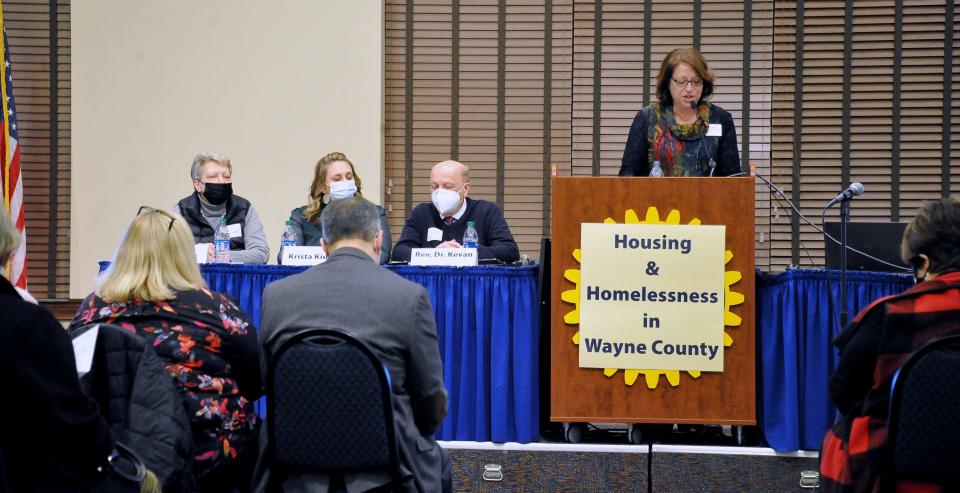
Despite all of these services there are still gaps, said Franklin. The limiting factor is funding.
Due to state and federal funding cuts, there is a shortage of case managers in Wayne County, he said.
Case managers are often the point of contact between social services and homeless individuals. They can provide a brain to pick and an ear to listen, he said.
Without case managers, Franklin said, a primary route to services and filling out paperwork for homeless individuals is lost — and with it, a key relationship.
To fill in these gaps, agencies are stepping up with their limited resources. Some, like Anazao Community Partners and OneEighty, send people into the community to build trust and relationships.
Many of these conversations take place at Trinity's morning breakfasts, Franklin said.
While the Wooster Homelessness Task Force was created two years ago to fill in some of the gaps, there is only so much they can do.
"There are too many cracks for us to fill," Franklin said.
What the community can do to help
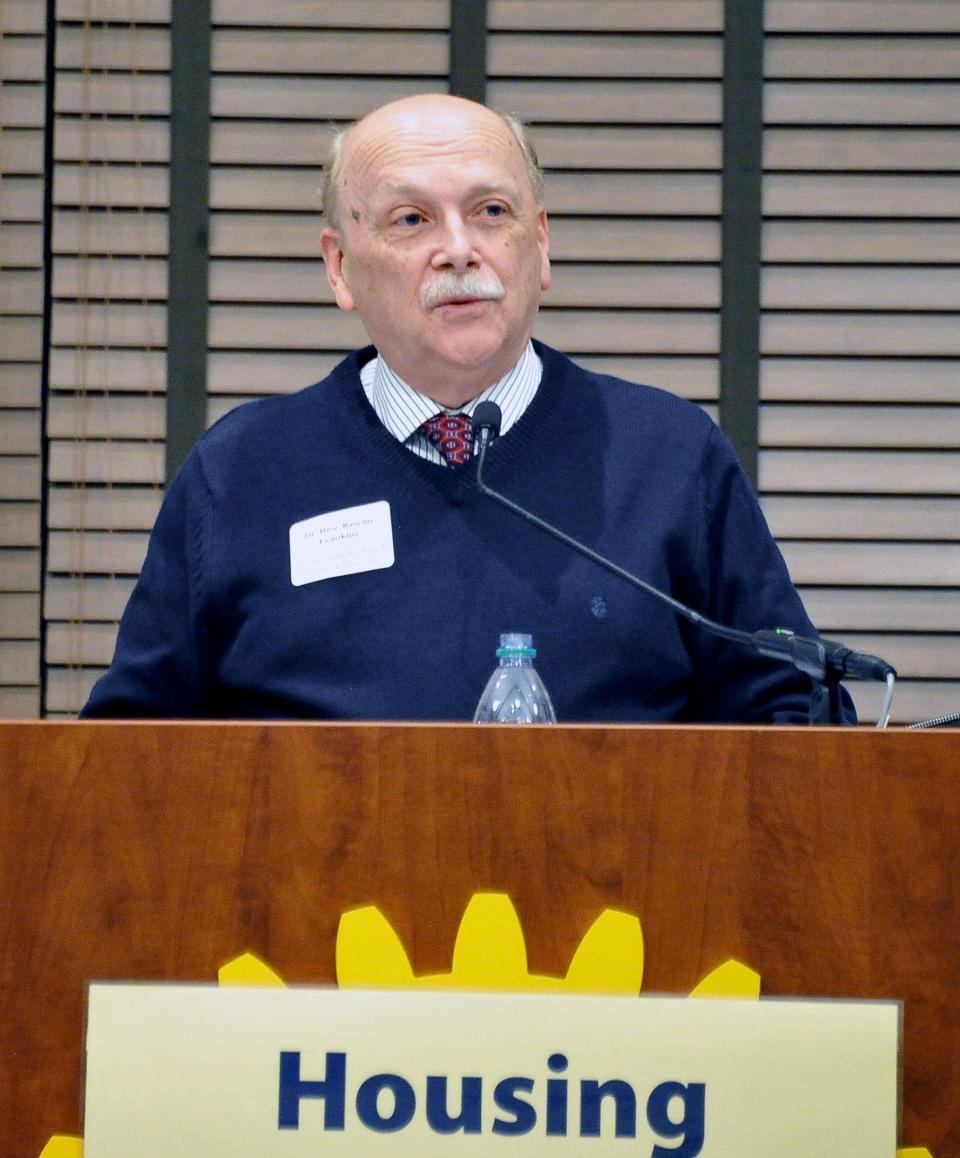
These problems exist at the community level, Franklin said, and each problem that causes and perpetuates homelessness is systemic.
For homelessness to be addressed, he said, the community must come together.
"We can't cast blame on anyone," Franklin said. "We are all part of the solution."
Volunteering time is a larg part of the solution, he said. And so is being informed on local, state and federal policies. Legislative decisions that might not impact one person can hurt or help someone else.
Supporting policies that provide proper funding to social and mental health services is key, Franklin said.
Going out into the community and getting to know people and networking can help bring services, homeless individuals and the community together, he said.
Among the best ways to build these relationships is to have compassion.
Compassion, he said, is a major step toward helping the homeless and bringing the community together.
Reach Bryce by email at bbuyakie@gannett.com
On Twitter: @Bryce_Buyakie
This article originally appeared on The Daily Record: Public meeting held to discuss housing and homelessness in the county

